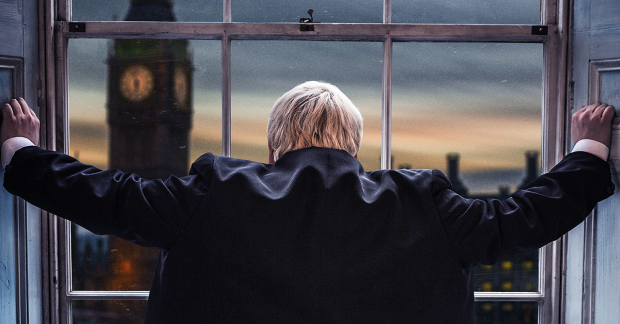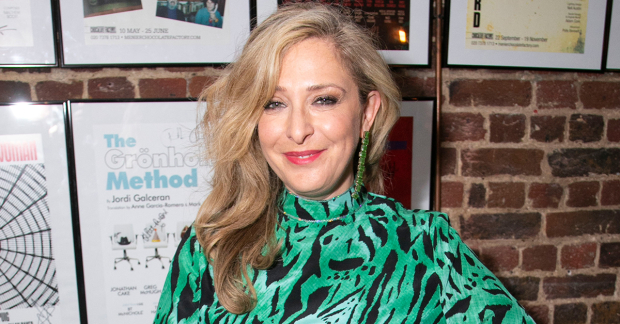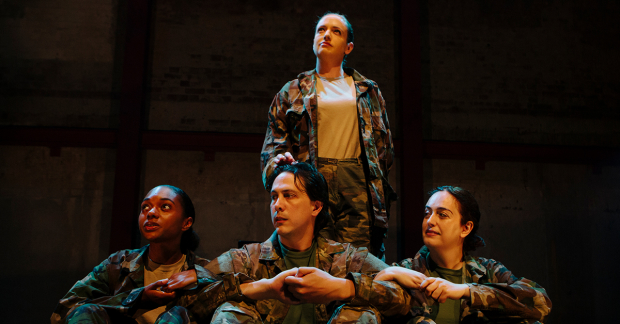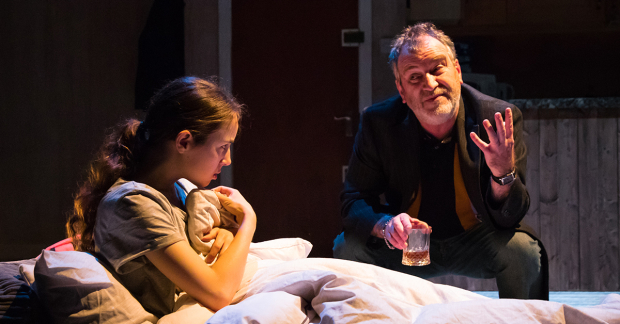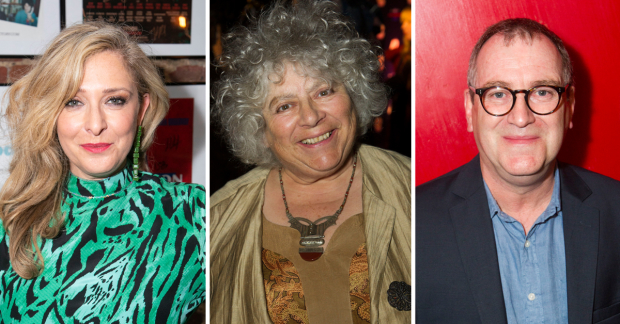Review: Sydney and the Old Girl (Park Theatre)
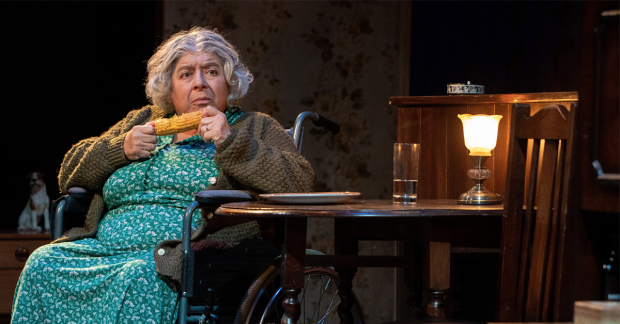
© Pete Le May
This is a horrid play. It's about a horrid, grumpy old woman and her horrid, racist son who are trapped together in a horrid claustrophobic flat. So far, so intentional in terms of sheer nastiness. But there's something unpleasant about Eugene O'Hare's writing too; it seems to be aiming for black
comedy, but I found it hard to laugh. In fact, I felt as I rarely do in the theatre, that I was so suffocated by pointless unpleasantness that I wanted to leave.
Virtually the only reason to see it is its star Miriam Margolyes, who, even though she is trapped in a wheelchair for most of the time, energises the stage by the sheer force of her personality and the vigour of her performance. Emotions – fury, concern, malevolence, fear – pass over her mobile face like storm clouds; she is always watchable and compelling.
But she really doesn't have enough to do. The play depicts Nell and Sydney (Mark Hadfield), a mother and son, trapped in a relationship of mutual loathing, which is soured and darkened by their mutual feelings about the death of another son many years before. They spar with each other in
deeply unattractive ways; their language is cruel – "you mong" "you deaf old snatch" – without ever being realistic.
She seeks to control him by manipulating her legacy – the money that she has saved and will leave after her death. He manipulates her with physical threat and cruelty. Into this twisted dynamic comes an Irish home help (Vivien Parry, rather wonderful) with a torrent of words and a good heart, who is devoted to helping poor Irish orphans. More power struggles ensue, until we reach a deeply melodramatic ending.
I suspect that O'Hare, who is also an actor and whose previous play The Weatherman was also performed at the Park Theatre, thinks he is being brave in the unvarnished way he presents his characters. There are thin echoes of Martin McDonagh's work – but without a shed of the inventiveness or the poetry or the overall purpose. This is a play that never shifts beyond its own small compass to suggest a wider truth beyond.
Phillip Breen directs the whole sour affair with a good ear for rhythm and a firm sense of pace, though Hadfield often seems uncomfortable with his role. Perhaps he just can't bear the character. I don't blame him. I couldn't stand any of them and felt only relief when the whole thing was over.



